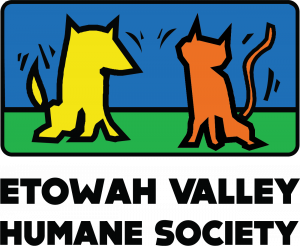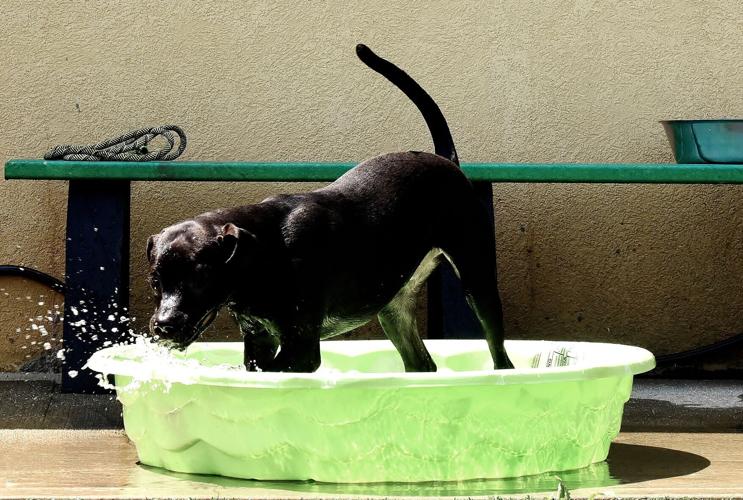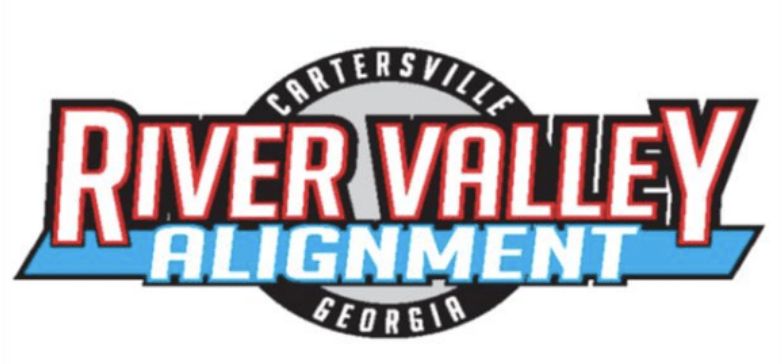By Marie Nesmith Aug 23, 2023 | Daily Tribune News
As temperatures continue to rise, officials with the Bartow County Health Department and the Etowah Valley Humane Society urge area residents to follow various measures to keep themselves and their four-legged friends safe.
“Extreme heat isn’t just unpleasant, it can be dangerous, too,” said Cyndi Carter, nurse manager of the Bartow County Health Department. “Exposure to extreme heat outdoors, or the inability to cool down, can cause serious, life-threatening health problems. Extreme heat is responsible for the highest number of annual deaths in the U.S. each year among all weather-related hazards — over 600 people.”
As of Aug. 23 at noon, the National Weather Service is forecasting Cartersville’s temperatures on Aug. 24, 25 and 26 to reach 95, 97 and 97 degrees, respectively. Aug. 24’s heat index is projected to hit 103.
“The health department asks people to wear light clothing, plan to avoid strenuous activities outdoors and stay in cooler areas when available,” Carter said. “Drink water to replace fluids in the heat, avoid large, hot meals and check on others, such as children and elderly people and people who may be affected by the upcoming air temperatures.
“Avoid walking pets on hot pavement and outdoor surfaces. Make sure they are hydrated and are out of the heat of the day. Don’t leave pets in closed vehicles because air temperatures inside enclosed vehicles can spike to dangerous levels in minutes.”
In its Aug. 22 news release, Georgia Department of Public Health also emphasized the need to “never leave infants, children, adults or pets in a parked car, even if the windows are cracked open — if you see anyone locked in a hot vehicle, call 911.”
Noting, “heat-related deaths are preventable,” Carter encourages the public to familiarize themselves with the symptoms of heat-related illnesses, such as heat exhaustion, heat stroke, heat rash, sunburn and heat cramps. Further details can be obtained at https://www.cdc.gov/disasters/extremeheat/warning.html#text.
According to the Centers for Disease Control and Prevention’s website, the signs of a heat stroke are a body temperature of 103 Fahrenheit or higher; red, hot, dry or damp skin; a fast and strong pulse; headache; dizziness; nausea; confusion; and loss of consciousness.
Georgia DPH encourages the public to check on those who are at a greater-risk for a heat-related affliction twice a day during periods of extreme heat. Its release describes these individuals as “infants and young children; people 65 years of age or older; people who are overweight; people who overexert during work or exercise; people who are physically ill, especially with heart disease or high blood pressure, or who take certain medications, such as for depression, insomnia or poor circulation.”
Echoing Carter’s comments, Etowah Valley Humane Society Director Bryan Canty underscored the need to keep pets cool during the recent soaring temperatures.
“Simply put — if it’s hot to us, it’s hot to our pets,” Canty said. “Folks need to understand that cats and dogs have a very limited way of sweating through pores on their skin. They are used to secrete pheromones that help them identify each other. They primarily sweat through their paw pads — not an effective way to lower body temperature.
“Dogs must pant to help regulate excessive body temperature. Now, factor in that most breeds are covered in hair and you can see what a hazard the heat poses. The same heat-related conditions that humans are prone to affect our pets. They deserve the same considerations we would give family or other loved ones.”
If possible, Canty recommends pet owners bring their furry friends indoors.
“If housing them inside your home is not feasible, then please provide shelter from direct sunlight and make sure they have plenty of water to keep them hydrated,” he said. “At this time, access to water is paramount. The current heat wave that most of the country is going through is no joke. People are dying. So can pets.”
Established in 1996 as the Bartow County Humane Society, the organization changed its name to Etowah Valley Humane Society in October 2006, the same year it opened the 4,928-square-foot shelter at 36 Ladds Mountain Road. The Cartersville nonprofit continues to serve as the adoption and rescue outlet for Bartow County Animal Control.
EVHS’ facility consists of two staff offices, two visitation rooms, a surgical suite, a puppy room with 19 enclosures, 14 climate-controlled kennel runs, a cat room with 24 enclosures, a quarantine room for young puppies and an on-site dog park.
“Although we strive to give our canines as much human interaction as possible, this summer has somewhat curtailed the extent of it,” Canty said about dogs up for adoption at EVHS. “They are getting out earlier or spending less time outside for their sake and out of concern for our volunteers. We haven’t scheduled any off-site events this summer.”












